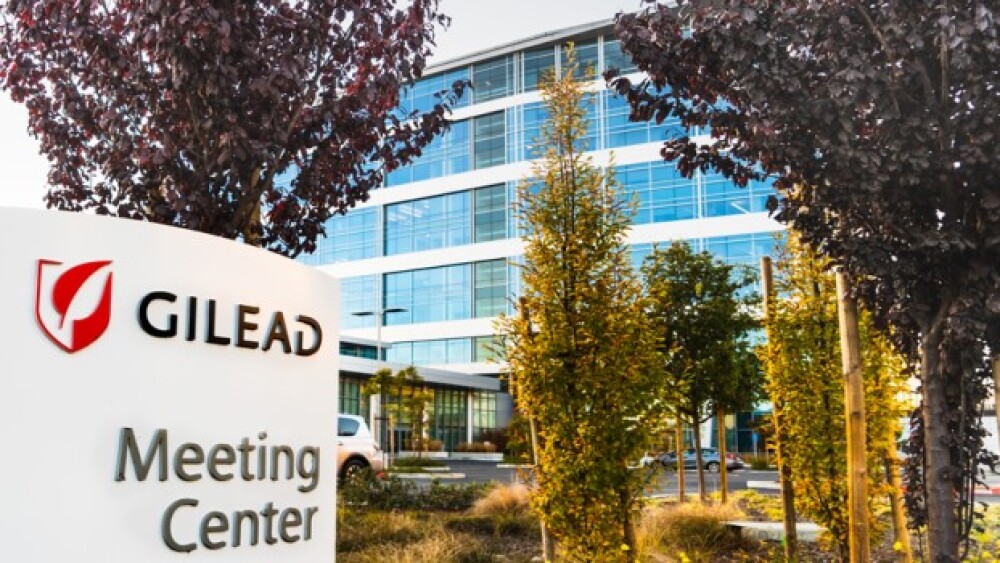Gilead Sciences is ending the development of magrolimab for the treatment of blood cancer following the FDA’s placement of a clinical hold on all its programs related to the drug.
Pictured: Gilead sign and building in Silicon Valley/iStock, Sundry Photography
Gilead is stopping the development of one of its oncology candidates for blood cancer after a clinical hold was placed on it by the FDA, the company announced Wednesday.
The decision to end a Phase III study of magrolimab in acute myeloid leukemia (AML) was taken after the FDA placed a clinical hold on all studies with the drug, including an investigation in myelodysplasic syndromes.
According to Wednesday’s announcement, Gilead will not “pursue further development” of magrolimab in blood cancers.
The company said that the decision comes after an independent data monitoring committee looked at the topline data and found that magrolimab, combined with venetoclax, had shown an increased risk of death via respiratory failure and infections.
“The complexity of treating blood cancer is highlighted in these results,” Gilead CMO Merdad Parsey said in a statement. “We are incredibly grateful to all the patients and investigators for their participation in the Enhance studies.”
Patients currently enrolled in the Phase III Enhance study will stop treatment as Gilead is working with investigators to determine what is appropriate. Gilead said that sub-analyses of the study are underway and results will be given to regulatory agencies and may be shown either at an upcoming conference or in a peer-reviewed journal.
The company is also planning to share all of the top-line data from the trials with magrolimab “shortly” and will also look over the drug’s safety across all solid tumor trials.
Magrolimab has faced regulatory challenges in the past. In August 2023, the drug was given a partial clinical hold in AML. In September 2023, Gilead decided to end the treatment in myelodysplastic syndromes due to lackluster results.
The drug became a part of Gilead’s arsenal after the $4.9 billion buy of Forty Seven in 2020.
The news of the magrolimab halt comes as Gilead reported a 4% revenue drop during the fourth quarter of 2023, showing weaker sales in its COVID-19 and HIV lines of business.
Tyler Patchen is a staff writer at BioSpace. You can reach him at tyler.patchen@biospace.com. Follow him on LinkedIn.






